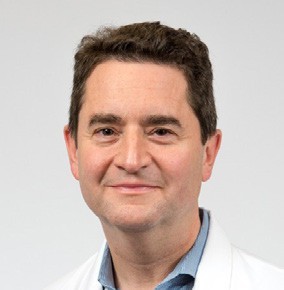VIRTUAL DERMATOLOGICAL ENGAGEMENT
Insight and oversight: Making the most of virtual platforms in dermatology
FIDE is an independent expert-led consultancy, specialising in providing insight into inflammatory skin conditions. Dr Bruce E Strober, Executive Director, takes a look at virtual communication with HCPs and patients, and offers insight into how to make the most out of virtual communications with dermatologists, HCPs, and patients

Pharmafile: What has the impact of restricted one-to-one healthcare professional (HCP) access engagement been on dermatological patient care?
Dr Bruce Stober: We have observed minimal effect – our practice has functioned mostly normally (with appropriate COVID-19 precautions in place) for the past 18 months.
Some restrictions have been placed on the number of pharma reps to keep density down. We’re actually busier than ever with patient care, and allow in-person interaction with pharmaceutical representatives. Truth be told, some restriction on pharmaceutical interaction is positive, as it can be overwhelming to a busy HCP trying to conduct patient care.
COVID-19 restrictions have also limited knowledge transfer – what effect has this had on dermatological R&D and patient care?
The lack of in-person meetings has necessitated virtual learning, which isn’t vastly inferior. However, in-person learning likely fosters more Q&A and discussion that is somewhat blunted by the virtual medium. Patient care likely hasn’t been impacted significantly. The real issue is how COVID-19 has delayed the FDA review process, inhibiting the approval of important new medications for patients in need.
Dermatology is an area with significant unmet patient needs. What is needed to provide access to expert insight, and how do you work to ensure it?
To really get to the bottom of unmet patient needs efficiently, it is vital for biopharmaceutical companies to develop relationships with a variety of HCPs who can provide unbiased insights on the market landscape. These insights are crucial for uncovering real challenges across the patient and healthcare professional journey. It is only by truly listening that organisations can develop solutions that can improve the lives of patients.
As a consultant I regularly interact with pharmaceutical companies of all types and sizes to help ensure more sensible product development and commercialisation. I also participate in numerous virtual continuous medical education (CME) and promotional activities that foster education and discussion.
Which areas of dermatology are neglected in terms of research and development, and patient care?
Some rare skin conditions, such as lichen planus, scarring alopecia, granuloma annulare, and hypersenstivity dermatitis (that primarily affects older individuals), are overlooked. These conditions are often tough to treat and require a lot of trial and error approaches. They also often face treatment failure. Further, medications that might be effective, without FDA approval for these uses, are hard to deliver to patients.
What have the most interesting developments in dermatology been over this time period, and what changes do you anticipate in the next ten years?
Without a doubt, the advancement of psoriasis therapeutics, which are now very effective and safe, and the incipient development of effective therapies for atopic dermatitis. The next 10 years will see further advancements in atopic dermatitis, hidradenitis suppurativa, alopecia areata, and vitiligo. Further, there appears to be a revolution brewing in the development of novel topical drugs with safe and effective mechanisms of action and can treat inflammatory dermatitis.
What are some of the ways dermatologists can adjust to the challenges presented to them in patient care through the COVID-19 pandemic?
In the US, COVID-19 has not recently impacted dermatology, with many practices quite busy. It appears that business has returned to normal. In essence, we are learning to live with COVID-19, instituting the correct precautions along the way.
What difficulties have arisen in educating HCPs in managing skin conditions over the past few years?
While allowing learning in the comfort of one’s own home or office, the movement to virtual media, due to lack of good engagement, is an inferior approach to in-person conferences and symposia. It is a mixed bag, as the lack of travel is, on balance, easier on lifestyle and happiness. HCPs who are disciplined and engaged can still learn a lot from the current virtual educational offerings.
What is your number one piece of advice for biopharmaceutical companies looking to enhance their relationship with dermatologists today?
Keep the interaction data driven, with honest presentations of your drug/agent – no tricks and over-commercialised approaches that don’t jibe well with reality. Also, focus on patients who have comorbidities – work with registries and other repositories of realworld data to get an idea of how the drug really works when used in clinical practice.

Dr Bruce E Strober, Executive Director at FIDE, is Clinical Professor of Dermatology at Yale University School of Medicine, and practices at Central Connecticut Dermatology. He is also co-Scientific Director of the CorEvitas psoriasis registry, Treasurer of the International Psoriasis Council, and Editor in chief of the Journal of Psoriasis and Psoriatic Arthritis. Dr Strober earned both his medical degree and his doctorate from Columbia University College of Physicians and Surgeons in New York. He completed his residency in dermatology at the Department of Dermatology, New York University School of Medicine. He is certified by the American Board of Dermatology and is a Fellow of the American Academy of Dermatology.
To find out more about FIDE, contact: steve.annels@fide.net